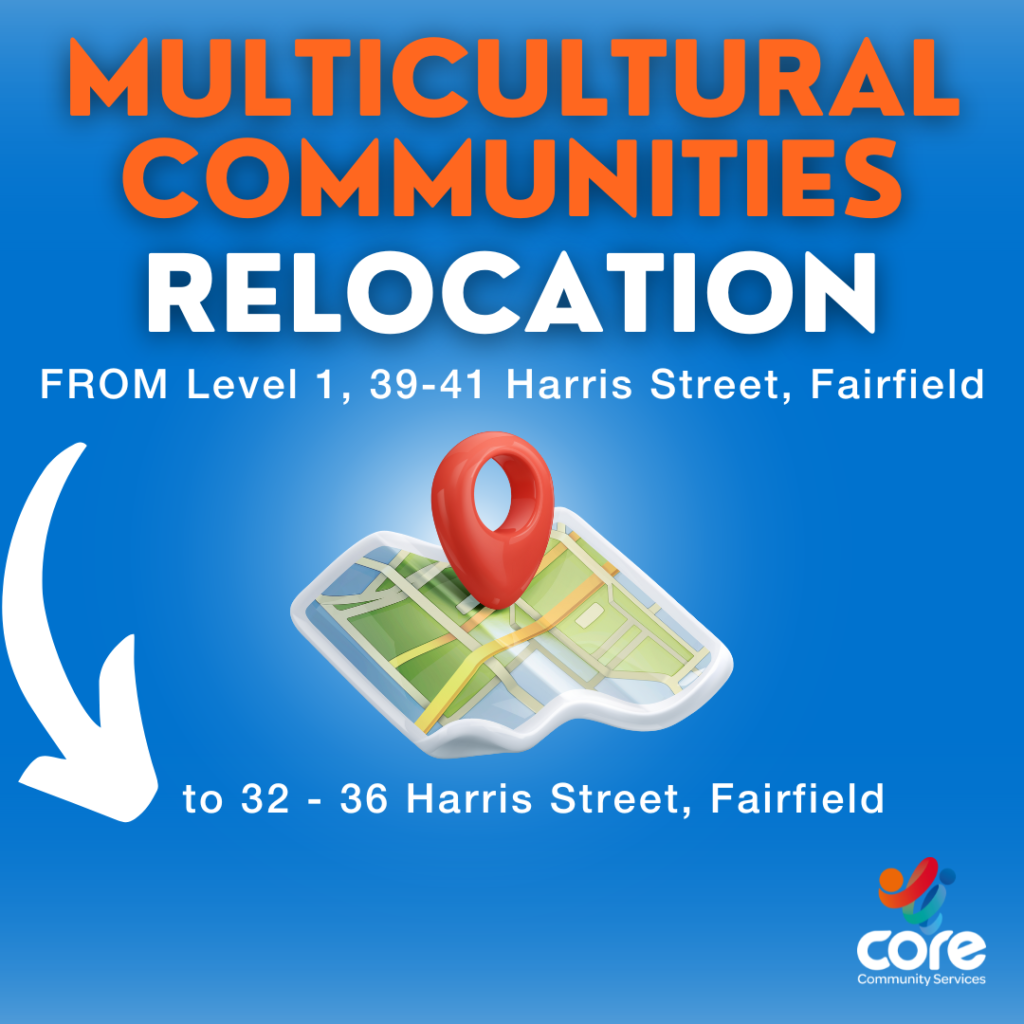Media Release: CORE awarded SETS contract by Federal Government

CORE Team with Chris Bowen MP and Dr David Saliba MP aCORE Team with The Hon Chris Bowen MP, Minister for Climate Change and Energy and Dr David Saliba MP, at the official SETS contract announcement.t the official SETS contract announcement.
CORE Community Services is excited to announce it has secured the Federal Government’s Settlement Engagement and Transition Support (SETS) contract, following a competitive tender process. This is a significant milestone for CORE, highlighting the organisation’s expertise in supporting newly arrived refuge and migrant communities and ensuring the best possible outcomes for them across all aspects of community life.
“We are pleased to announce that CORE has received continued funding for the delivery of Settlement Engagement and Transition Support Program from Department of Home Affairs. This program provides lifeline support and services to newly arrived refugees, migrants and humanitarian entrants in Fairfield LGA,” said Juana Reinoso, the Chief Executive Officer of CORE. “Securing this contract is testament to our strong community ties and extensive experience in settlement services. With Fairfield LGA receiving the highest number of new arrivals in the country, we are committed to providing the resources and support necessary for a smooth transition.”
With over 40 years of experience, CORE is one of the leading settlement service providers in the Fairfield LGA. Additional funding and resources from the SETS program will enable the organisation to recruit more trained staff, increasing CORE’s capacity and ability to deliver tailored services to meet the diverse needs of new migrants and refugees.
“Settling into a new country can be extremely difficult, especially when the people, culture and language are all new. Our skilled staff, many of whom are from migrant backgrounds themselves, understand the unique challenges new arrivals face. Our staff are passionate about making sure clients feel welcome and supported at every stage of their journey, connecting them in with the right services and support to reach their full potential,” Juana said.
The SETS program focuses on supporting new arrivals by providing essential services, such as case work, employment and training support, social support, community development and capacity building and youth work, that address their unique needs during the critical post-arrival period. CORE will expand its team to increase support for newly arrived communities, strengthening social participation and community connectedness and improving overall economic and personal wellbeing.
CORE’s long-standing commitment to community service is evident in its history and the trust it has earned from both the government and the community. The organisation remains dedicated to creating a positive experience and a supportive environment for all new Australians.
CORE Community Services Ltd is a not for profit organisation operating in South West Sydney since 1979. We run a wide range of activities, and programs across our key services; Children’s Services, Youth Services, Multicultural Communities, Aged and Disability Care and Community Hubs with a focus on Culturally and Linguistically Diverse Communities and vulnerable communities.
Media Enquiries: Maheen Imam
0473 851 206
media@corecs.org.au




